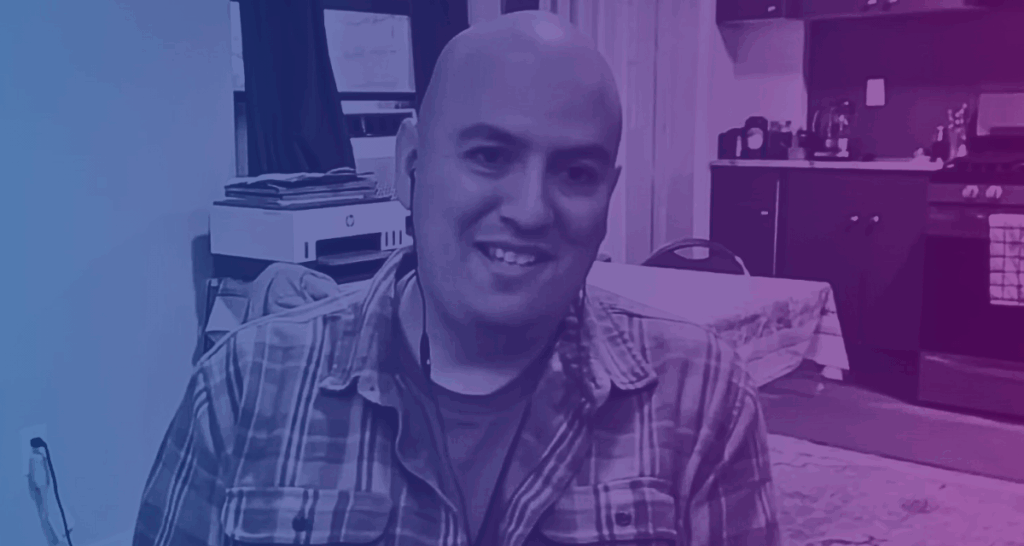
The American Film Market was back online this year, hosting an array of networking opportunities, workshops, informative panels and screenings and welcomed over four hundred production, distribution and sales companies. Like the 2020 event, this one was again all contained on a virtual campus.
Media Services returned as a Premiere Sponsor of the AFM and hosted the Marina Stage, dedicated to informative panels, discussions and presentations for AFM attendees searching for a deeper understanding of the industry now.
Ryan Broussard, Media Services’ Vice President of Sales and Production Incentives, spoke on a panel focused on dissecting the financial challenges facing independent producers today and ways to overcome these challenges. He was joined by co-panelists Sophia Yen, Partner at Manatt, Phelps & Phillips, LLP; and Matthew Rhodes, President of The Hideaway Entertainment. The discussion was moderated by David Offenberg, Associate Professor of Entertainment Finance at Loyola Marymount University.
Film Finance Success: The Producer’s Perspective covered best practices for working with financiers, budgeting a script, getting an independent feature off the ground and finding distribution. The panelists discussed the climate of film finance today and determined a few key points that can determine an independent film’s financial success.
On the heels of a global pandemic, uncertainty among investors, institutional lenders and foreign distributors has seldom been higher. Producers often face production shutdowns, and the costs are adding up. Insurance companies are finding ways to avoid COVID coverage as they hemorrhage cash in premium payouts.
Yen explained that even experienced producers are seeing an increase in production costs due to the pandemic. Bottom line: plan ahead. Films are getting more expensive to make, and producers should account for costs associated with shutdowns in advance of raising capital.
Broussard finds that when talking to people on the creative side, “many don’t think about the finance side of a project.”
“Filmmakers have to think about the finance side and should have a good budget in place,” he said – especially when considering film tax incentive programs.
Rhodes went further to say that securing distribution in advance of making a film is a challenge, especially for lower budget projects. While he says a pre-sale might reduce financial risk, at the end of the day the key is originality.
“If you make something creative, wonderful and great a distributor might step up and pay,” said Rhodes. “Hopefully as much if not more than you made it for.”
Investor interest is beginning to go beyond recoupment. Yen introduced the “double bottom line,” a concept used to explain that, while getting a return is important, financiers want to see their money work harder for equitable outcomes.
“To promote some sort of social cause,” Yen affirms her financier clients “care about leveling the field of inequality in Hollywood that has existed in the past.”
Proper valuation of a project can go a long way. The true value of a project shouldn’t be underestimated. If the film costs more than it’s worth on the market, there is risk it won’t make a return.
Rely on quantifiable data points. Consider the historical financial performance of a given genre, language, actor or filmmaker in specific markets. Use those figures to find soft value.
Solid financial tools help demystify value too. As a tax incentives expert, Broussard sees the importance of a film’s valuation based on tax credits. New factors, such as diversity, are starting to matter financially.
Broussard sees a positive trend spreading across many states’ film tax incentive programs, as they reward diversity on production with incentive bonuses. Hiring a more diverse crew and cast is not only a great way to move the industry forward, he says, but also to increase funding. “Diversity is now going to play a hand not only in incentives,” he says, “but in your budget too.”
Creating a budget is key to raising money. You need to know how much it will cost to make a film before approaching investors.
“Don’t oversell it,” Yen advised. Investors are more willing to work with you if they feel they are getting the truth, even if it means looking less than perfect. She recommends having a plan for recoupment and an assessment of completion risk.
Passion for the script or material is important to Rhodes. As a producer and a financier, Rhodes prefers to “start from a creative point of view.” He recommends teaming up with a lawyer or two, finding a great script or piece of source material, hiring a line producer, and finally meeting with Broussard or someone like him to find the best place to film the project.
“It’s all about figuring out the right state for your project,” confirmed Broussard, and as early in the development process as possible. With a comprehensive budget in hand, you can prepare to finance.
Once a project is budgeted and ready for financing, Yen could not stress enough the importance of having a great attorney by your side.
“Financing kicks [a project] up to another level of sophistication, and it’s good to have some proper legal guidance,” she said.
Hidden costs shouldn’t be ignored when writing a budget either. Financing costs are often overlooked. Union fees are incredibly important to take into account, including upfront fees and any residuals that may need to be paid on the back end indefinitely. These things and more can have serious ramifications for the project. An attorney and lawyer are key in these instances.
Pre-sales and distribution are another piece of the puzzle in getting your film financed and seen, just as much as it is about recouping investors and paying back lenders. Financiers are investing in a team as much as they investing in an actionable idea.
Yen sees an interesting trend in pre-sales and distribution.
“Pre-sale market activity has gone down a lot,” she noted. “With regards to streamers, I’ve started to see them take the place of, and picking up a lot of films that might have been direct to video plays in the past. It’s nice because it’s opening up a new lane for those types of productions.”
Broussard believes it’s important to put together a strong team you, investors and distributors can rely on from start to finish.
“It’s okay to ask for help,” says Broussard. “If you get some money early on, put it towards a producer or line producer and an accountant, somebody to help you with your budget and figure out where to film.”
Broussard believes a key to success is to “surround yourself with really good people,” a notion echoed again and again by his co-panelists. Broussard encouraged participants to reach out to him directly for free guidance anytime, at [email protected].
Rhodes implores independent producers to “get over the fear of ‘no’ to get to ‘yes.’” He stressed the importance of finding the right partner for your independent film. It’s important to find a company or team that is just as passionate about your project as you are. They should know more too, and be better equipped to guide you and the project to success.
__
American Film Market (AFM) is focused on hosting a large and diverse market for film and television industry professionals to meet and make deals. Founded in 1981, AFM provides networking, education and sales opportunities to independent producers, executives, distributors, sales agents, festivals and others through its annual market. The market boasts over a billion dollars in production and distribution deals for producers annually.
